War Is Squeezing Nigeria’s Economy
The escalating conflict between Israel and Iran is sending shockwaves through global oil markets, driving crude prices to new highs. For oil-dependent economies like Nigeria, the ripple effects may prove devastating. Korede Abdullah, Africa Health Report (AHR) Southwest correspondent raises pertinent questions about the ripple effects on the global economy, especially as Nigeria grapples with a worsening cost-of-living crisis that is already deepening poverty, inflate goods and services, and cripple key sectors.
A Dark Pall of Shadow
The escalating conflict between Israel and Iran has cast a long shadow over the global oil market, with crude prices surging to $76.45 per barrel. For Nigeria, a country heavily reliant on imported refined petroleum products despite being Africa’s largest oil producer, the ripple effects are becoming painfully evident.
Analysts say the immediate consequence is an upward spiral in the cost of Premium Motor Spirit (PMS), commonly called petrol, as well as cooking gas. “When crude oil prices go up due to geopolitical crises, we inevitably pay the price at the pump and in our kitchens,” noted energy analyst, Dr. Yinka Olabisi.
He warned that these increases will deepen the economic hardship already confronting millions of Nigerians grappling with high inflation and stagnant wages.
Depots, Tanker Strikes, and the Specter of Scarcity
Informed sources as of weekend predict that petrol price will hit N1,000 this Monday as the US bombardments of the Iran nuclear facilities take it toll. Indeed, around Lagos and Abuja, checks conducted by AHR indicate that oil marketers are adjusting their pumps for upswing prices. Unfortunately, over the past two years, price increase in petrol has been persistent with poor Nigerians bearing the burden. The oil price hike, combined with domestic distribution challenges, has triggered a surge in depot prices across the country. Data from Monday revealed steep jumps: Dangote Refinery’s petrol price rose from N825 to N840 per litre, Rainoil hit N900, and NIPCO’s figure climbed to N895.
The situation was exacerbated by the strike embarked upon by tanker drivers protesting the N12,500 E-Call Up fee in Lagos. Although the industrial action was called off on Tuesday, it has paralysed fuel loading operations.
A depot operator, who spoke under anonymity, warned, “The issue of price is secondary at the moment, as there was no fuel loading on Monday. Unless the government settles the crisis arising from the E-Call Up system, Nigeria might witness another fuel scarcity soon.”
PENGASSAN Slams Marketers over Arbitrary Pricing
Amid these developments, the Petroleum and Natural Gas Senior Staff Association of Nigeria (PENGASSAN) has accused marketers of exploiting the volatile situation for selfish gain. Its president, Festus Osifo, decried the persistent price hikes despite crude prices earlier hovering between $62 and $65 per barrel.
“Today, with crude hovering between $62 and $65, there has been no commensurate reduction in the pump price,” Osifo said at a press conference in Abuja. He further urged the Nigerian Midstream and Downstream Petroleum Regulatory Authority (NMDPRA) to publish pricing templates to stem the tide of arbitrary and exploitative pricing.
Rising Poverty and Economic Strain
Experts warn that the combined effects of surging oil prices in the international market, domestic supply bottlenecks, and price manipulation by marketers could exacerbate poverty across Nigeria.
The burden of higher fuel costs will not only raise transport fares but also inflate the prices of goods and services, placing additional strain on households already battling the worst cost-of-living crisis in decades.

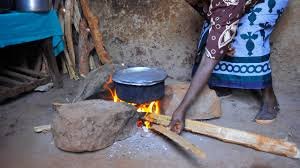
“Energy poverty is real, and rising fuel prices mean more Nigerians will slide below the poverty line,” said a lecturer at the Department of Economics, Ekiti State University, Ado-Ekiti, Dr. Olanrewaju Saliu.
Analysts further note that the situation could have ripple effects across critical sectors such as agriculture, manufacturing, and small-scale enterprises, many of which rely on fuel for operations.
Cooking Gas Becomes Luxury for Many
The fallout from the Israel-Iran conflict is not limited to petrol. The price of cooking gas, an essential household energy source, has climbed in tandem with crude oil prices, making it increasingly unaffordable for many Nigerians. This is pushing poor households to switch to cheaper but harmful alternatives such as charcoal and firewood, with severe implications for the ecosystem and climate change.
The Nigerian Association of Liquefied Petroleum Gas Marketers (NALPGAM) reported a steady rise in depot prices over the last two weeks, citing global supply disruptions and rising crude oil benchmarks. As a result, many low-income families may revert to traditional biomass fuels, which pose risks beyond immediate health hazards like indoor air pollution and respiratory diseases.
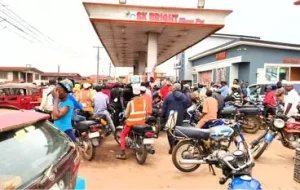
Experts warn that the increased felling of trees for firewood accelerates deforestation, reduces carbon sequestration capacity, and contributes to land degradation. This not only undermines biodiversity but also exacerbates climate change by releasing stored carbon into the atmosphere.
“The shift to firewood and charcoal for cooking presents a worrying trend. It means more trees are cut down, which weakens our natural defences against global warming,” said an environmental scientist at the Lagos State University, LASU, Dr. Musa Adeyemi.
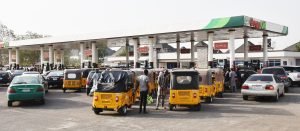
He added that the cumulative effect could be a rise in greenhouse gas emissions and a disruption of local climate patterns, worsening the already fragile environmental conditions in many parts of Nigeria.
The Middle East Conflict’s Global Oil Impact
Global markets have long been sensitive to turmoil in the Middle East, a region that supplies a significant portion of the world’s oil. The ongoing Israel-Iran confrontation has disrupted key supply chains and heightened the risk premium on crude.
As tankers reroute to avoid potential conflict zones, shipping costs have soared, and insurance premiums for vessels transiting the Strait of Hormuz — a critical chokepoint through which nearly 20% of global oil passes — have spiked dramatically.
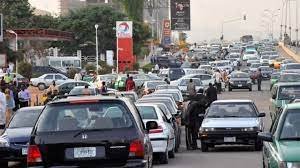
“Whenever there is war in the Middle East, speculators and traders react instantly, driving up prices. Unfortunately, oil-dependent economies like Nigeria suffer the consequences,” observed London-based commodities expert, Ayo Ajibade.
Industry analysts warn that the surge in oil prices could further stoke global inflation, complicate monetary policy decisions, and deepen economic hardship in import-dependent nations. “For countries that import refined petroleum products, the double blow of higher crude prices and a stronger dollar compounds the cost-of-living crisis,” said a public affairs analyst, Dr. Funke Cole.
Experts also caution that sustained instability could trigger long-term shifts in supply routes and encourage more strategic stockpiling by large economies, thereby tightening market availability.
Refinery Woes: Politics over Performance?
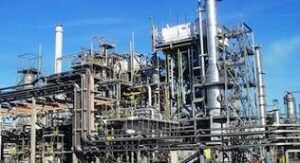
Nigeria’s inability to cushion these shocks through domestic refining remains a sore point. PENGASSAN’s Osifo has linked the shutdown of refineries, particularly the Port Harcourt plant, to political decisions rather than technical failures.
“The level of efficiency of those refineries is not optimal. We are calling on the government and the handlers of the refineries… to look at the operational model and yield to the time-tested call for a revamp,” he said. Analysts argue that functional local refineries could have insulated Nigeria from the worst effects of international price volatility.
Dangote Refinery’s Not Sufficient
Although the Dangote Refinery’s 650,000 barrels per day (bpd) capacity represents a significant milestone, experts warn that this figure alone is not enough to fully meet Nigeria’s complex domestic consumption needs.
With the country’s daily fuel consumption reportedly ranging between 55 and 70 million litres of petrol—equivalent to around 1.2 million barrels of crude oil after accounting for refining yields and product mix—there remains a substantial shortfall that must be supplemented either by imports or additional local refining capacity.
Furthermore, Dangote’s output includes other products like diesel, aviation fuel, and export-grade fuels, meaning not all of its capacity is channeled into meeting local petrol demand.
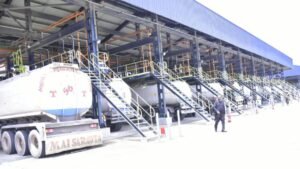
Energy economists also point out that logistical challenges, distribution inefficiencies, and the absence of supporting modular refineries continue to undermine the country’s quest for self-sufficiency in refined products.
“Until we have a robust network of functional refineries—public and private—that together exceed domestic needs and create buffer stock, we will remain vulnerable to global price swings and supply disruptions,” said an oil and gas consultant, Dr. Salisu Ibrahim.
Foreign Investors Take Flight
Beyond fuel pricing, insecurity in oil-producing regions continues to deter foreign investment, compounding the sector’s woes. Despite the Nigerian government’s incentives to retain multinational oil companies, worsening attacks and kidnappings have eroded investor confidence.
“The incentives are not enough when the security architecture is weak,” said oil and gas consultant, Mrs. Ronke Balogun. “If investors pull out, it weakens our production capacity and revenue base even further.”
A Call for Bold Policy Action
The combined local and global crises present a stark challenge to policymakers. Experts are calling for urgent intervention: from resolving the tanker drivers’ strike and reforming depot operations, to fast-tracking refinery repairs and adopting more transparent pricing mechanisms.
Without decisive action, the economic pain inflicted by the Israel-Iran war could further destabilise Nigeria’s fragile economy. As Dr. Olabisi cautioned, “This is a wake-up call. We can no longer afford to rely on imported refined products in a world of geopolitical uncertainty.”
Nigeria Must Pivot its Focus
An economist and financial analyst, Dr. Oluwatosin Yusuf, while speaking with AHR, urged that, in light of the economic fallout from the Israel–Iran war and the recent surge in crude-oil prices on the global market, Nigeria must urgently pivot its strategic focus toward bolstering its manufacturing and agricultural sectors.
He warned that “overreliance on oil revenue leaves the country highly vulnerable to external shocks,” stressing that “scaling up local production of goods and food crops will not only buffer our foreign-exchange reserves but also create jobs and drive inclusive growth.”
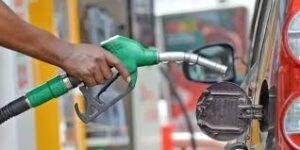
Yusuf further called for “targeted government policies such as incentives for agro-processing plants, support for mechanized farming, and easier access to credit for small and medium manufacturers” to shift the economy away from export-dependence on volatile commodities toward a “more resilient, diversified, and self-sustaining development path.”



